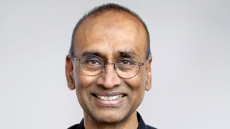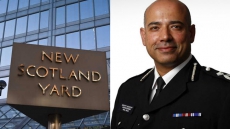In yet another landmark judgement, the Supreme Court on Thursday unanimously decriminalised adultery after striking down a British era law, Section 497 of the Indian Penal Code, terming it as unconstitutional, archaic and manifestly arbitrary, with one judge saying women cannot be treated as "chattel".
"Section 497 is a denial of the constitutional guarantees of dignity, liberty, privacy and sexual autonomy which are intrinsic to Article 21 of the Constitution," the court said referring to the provision on protection of life and personal liberty.
"Mere adultery can't be a criminal offence. It is a matter of privacy. Husband is not the master of wife. Women should be treated with equality along with men," said Chief Justice Dipak Misra.
However, the court held that adultery would continue to be a civil wrong and could be one of the grounds for divorce. Earlier this month, the court had delivered another significant judgement in which it had decriminalised same sex offence.
Saying that a time has come to say that husband is not a master, Chief Justice Misra said: "A woman can't be asked to think as a man or as how the society desires. Such a thought is abominable, for it slaughters her core identity. And, it is time to say that a husband is not the master."
Having declared Section 497 -- a 158-year-old provision -- as unconstitutional, the court also struck down Section 198 of the Code of Criminal Procedure being violative of Articles 14, 15(1) and 21 of the Constitution dealing with the right to equality before law.
Section 198 of the Code of Criminal Procedure deals with the procedure for filing a complaint in relation to the offence of adultery.
Most countries have abolished adultery as a crime, CJI Misra also speaking for Justice A.M. Khanwilkar, said: "Treating adultery as an offence, we are disposed to think, would tantamount to the state entering into a real private realm."
"If it is treated as a crime, there would be immense intrusion into the extreme privacy of the matrimonial sphere. It is better to be left as a ground for divorce," CJI Misra said.
He further said that for "any other purpose as the Parliament has perceived or may, at any time, perceive, to treat it as a criminal offence will offend the two facets of Article 21 of the Constitution, namely, dignity of husband and wife, as the case may be, and the privacy attached to a relationship between the two."
The "real heart of this archaic law", Justice Rohinton Fali Nariman in a separate but concurring judgment said, "discloses itself when consent or connivance of the married woman's husband is obtained -- the married or unmarried man who has sexual intercourse with such a woman, does not then commit the offence of adultery.
"This can only be on the paternalistic notion of a woman being likened to chattel, for if one is to use the chattel or is licensed to use the chattel by the licensor, namely, the husband, no offence is committed," Nariman said pointing to how it was an outdated law.
Further, dwelling on adultery law being outdated, Nariman said: "What is clear, therefore, is that this archaic law has long outlived its purpose and does not square up with today's constitutional morality, in that the very objective with which it was made has since become manifestly arbitrary, having lost its rationale long ago and having become today utterly irrational."
If the husband consents or connives at such sexual intercourse, Justice Nariman said that the offence is treated as not committed, thereby showing that "it is not sanctity of marriage which is sought to be protected and preserved, but a proprietary right of a husband".
Holding that the human sexuality is an essential aspect of identity and it cannot be construed purely as a physiological attribute, Justice D.Y. Chandrachud said it is an expression of the human desire to be intimate with a person of one's choice.
"Sharing of physical intimacies is a reflection of choice" Justice Chandrachud said, adding: "Section 497 denudes the woman of the ability to make these fundamental choices, in postulating that it is only the man in a marital relationship who can consent to his spouse having sexual intercourse with another."
He further said that Section 497 disregards the "sexual autonomy which every woman possesses as a necessary condition of her existence".
Far from being an equal partner in an equal relationship, Justice Candrachud said that married woman is subjugated entirely to the will of her spouse.
Holding that underlying Section 497 is a "gender stereotype that the infidelity of men is normal, but that of a woman is impermissible", Justice Chandrachud said: "Equality of rights and entitlements between parties to a marriage is crucial to preserve the values of the Constitution. Section 497 offends that substantive sense of equality and is violative of Article 14."
Saying that the society has two sets of rules -- one for woman and other for man, he said: "The law on adultery is but a codified rule of patriarchy. Patriarchy has permeated the lives of women for centuries."
Stating that society ascribes "impossible virtues to a woman and confines her to a narrow sphere of behaviour by an expectation of conformity", Justice Chandrachud said that "raising a woman to a pedestal is one part of the endeavour but the second part is all about confining her to a space".
"The boundaries of that space are defined by what a woman should or should not be. A society which perceives women as pure and an embodiment of virtue has no qualms about subjecting them to virulent attack: to rape, honour killings, sex-determination and infanticide," Justice Chandrachud said.





